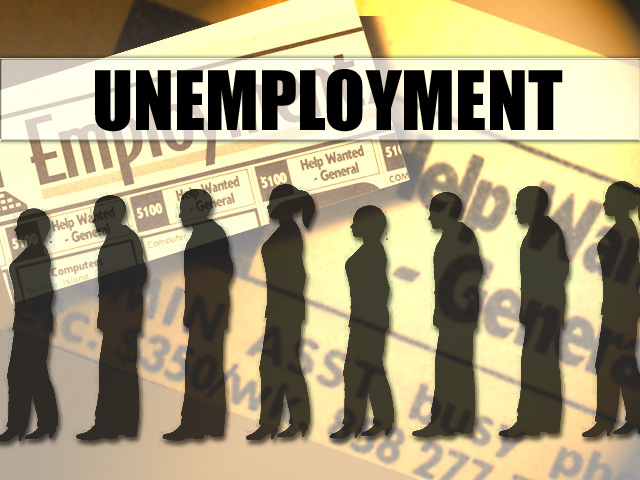Are we really caring for one another?
Has the body of Christ succumbed to the common view that the primary provider of welfare and care for believers and those around us is the secular state rather than the church of God's people?
first published 23/02/12
"Most of my church wouldn't know if I was unemployed"
 SINCE the advent of the Welfare State in the aftermath of WW2, a culture has developed in our country whereby we automatically look to the state to provide for those who have fallen on hard times. And it could be suggested that this tendency is as prevalent within the body of Christ as it in our surrounding mainly-secular society. SINCE the advent of the Welfare State in the aftermath of WW2, a culture has developed in our country whereby we automatically look to the state to provide for those who have fallen on hard times. And it could be suggested that this tendency is as prevalent within the body of Christ as it in our surrounding mainly-secular society.
In a DVD discussion-group series on ‘Christians at Work’ a church member was asked how his church would respond if he lost his job. After reflecting for a moment on the question, his answer, given with absolutely no trace of malice, was that most of church wouldn’t even come to know of his situation; and those who did would probably just assume that the secular ‘safety net’ would provide.
Selling fields...
 How differently we see the early church behaving. Dr. Luke, in recording the actions of the very early followers of Christ wrote: How differently we see the early church behaving. Dr. Luke, in recording the actions of the very early followers of Christ wrote:
“All the believers were together and had everything in common. Selling their possessions and goods, they gave to anyone as he had need" (Acts 2:44-45).
And in the power of that first falling of the Holy Spirit further wrote:
“All the believers were one in heart and mind. No one claimed that any of his possessions was his own, but they shared everything they had. With great power the apostles continued to testify to the resurrection of the Lord Jesus, and much grace was upon them all.
"There were no needy persons among them. For from time to time those who owned lands or houses sold them, brought the money from the sales and put it at the apostles' feet, and it was distributed to anyone as he had need. Joseph, a Levite from Cyprus, whom the apostles called Barnabas (which means Son of Encouragement), sold a field he owned and brought the money and put it at the apostles' feet" (Acts 4:32-37).
Apart from the liberality and care manifest in that scene, these verses also provide a very powerful challenge to our present-day attitudes to ‘ownership’ and ‘property’. And at this point a short story.
It all belongs to the Lord
 Many years ago, as a (spiritually) fairly-young believer with a young family, our summer holiday was a ‘house-swap’ with another Christian family in the Scottish borders. Many years ago, as a (spiritually) fairly-young believer with a young family, our summer holiday was a ‘house-swap’ with another Christian family in the Scottish borders.
Our holiday flat was part of a large house which was run as a Christian ministry to those in that community who were in need of help. As the family whose flat we were using had taken the ministry’s only car, those involved in operating the ministry were left without transport for the (very large) weekly shop at the grocery store.
Feeling ever-so-slightly self-righteous, I thought to offer our car for that purpose on each Friday of our two weeks there. But it didn’t work out that way. Before I got around to making the offer, Robert (the ministry leader and a former Church of Scotland clergyman) advised me – politely but in a matter-of-fact manner – that he needed the car on Wednesday. (My plan had earmarked Friday.) And his need was for 'the' car; not ‘my’ car. In handing over our 'family wheels', I was reminded (and gently rebuked), by the Lord, that irrespective of my name being on the vehicle’s registration document, the car actually belonged to Him.
A theology of possessions
 And a perspective on 'possessions' is illustrated by another story. And a perspective on 'possessions' is illustrated by another story.
A Christian missionary who had spend his active life working with an African tribe; and he explained that in the vocabulary of their native language, there was no word for ‘have’. So in describing their assets they couldn't say (for instance): “I have a cow”, or “I have a house”:
The most that their language would allow in terms of their situation was the use of the word ‘with’. So they would say: “I am with a wife”; or “I am with a house”; or “I am with children”.
The native African tribe had a much better theology of ‘possessions’ than generally we have in the West.
Complacency and self-delusion
We can even fool ourselves into thinking that ‘tithing’ gets us off the hook. In fact in Old Testament times ‘tithing’ was the equivalent of our income tax and national insurance. It was de riguer; demanded under the law. ‘Giving’ only started after the tithe. In fact God doesn’t so much want a tithe, He wants it all; or at least for us to give Him His right of access to it all: because it all comes from Him.
A charity-collector's plastic bucket commanded: "Give 'til it hurts". In fact the biblical view is that 'giving' only becomes real giving when it is done sacrificially; when in fact it does hurt. In seeking to acquire a building site for the Temple in Jerusalem, King David was offered the threshing floor as a gift. However the King said to Araunah: "I will not offer burnt offerings to the the Lord my God which cost me nothing" (1 Kings 24:24).
With an economy in tatters and many individuals and families – Christians included – in our neighbourhoods falling into chronic hardship, the word of God challenges our Western mindset and comfortable life-styles.
Back in 1977 Professor Ron Sider (of Brethren/Mennoite background) published a book entitled: 'Rich Christians in an age of hunger'. It was hailed by Christianity Today being amongst the one hundred most influential books in religion in the 20th century. It concerned Western church attitudes to 'giving'.
One reviewer wrote:
“What is perhaps most disturbing in the book’s analysis of giving is that the richer countries become, the less they give.” Commenting on the fact that the US is the world’s richest country, but comes last in an index of aid as a percentage of GNP he continued: “the American church is prone to apathy in the face of global injustice.”
The UK it seemed was no better:
“In terms of GNP, the US gives away a minuscule 0.14%, and before we congratulate ourselves in the UK, we only manage 0.34%. Acknowledging our stinginess may be a first step in becoming more generous.”
The reviewer went on to observe that the Bible is full of instructions to care for the poor, and warnings about being seduced by riches.
“It would be a mistake to think the Bible is against possessions or wealth, but responsibility with riches is essential in a Christian framework. Greed is unacceptable, and ignoring the poor is damnable. Unfortunately, the richer Christians have become, the less they have given away."
At the time of writing, Sider’s findings showed that Christians gave less than they did in the 1960′s, despite being considerably better off. His researched showed that if American Christians tithed, and gave it away rather than spending it on buildings, they would privately raise enough to give basic healthcare, education and sanitation to every single poor person on the planet, with $70 billion to spare. The review concluded:
“Those kinds of facts shame the church and our priorities. Sider’s answers include increased generosity, and the church taking the Bible’s call for sacrificial giving seriously.”
Inflated lifestyles
Filling in a questionnaire in an airport lounge recently I was asked the question: “How many holidays do you have each year?” (And the question being posed in a departure lounge was referring to main holidays.) The 'tick-box' choices were: “1 -3; 3 – 6; or 6+”.
Is this the age we are living in when we see so much need around us? Have we, as the followers of Christ become caught up in inflated lifestyle expectations? Is there an immunity of thought or wilful ignorance regarding the increasing imbalance between those who have and those who don’t – even within the body of Christ regarding one believer and another?
James, in his letter wrote:
“Suppose a brother or sister is without clothes and daily food. If one of you says to him, "Go, I wish you well; keep warm and well fed," but does nothing about his physical needs, what good is it? In the same way, faith by itself, if it is not accompanied by action, is dead" (James 2:14-16).
And Paul in his instruction to the Galatians instructed:
“Therefore, as we have opportunity, let us do good to all people, especially to those who belong to the family of believers" (Gal 6:10).
These are God’s words to the believers 2000 years ago: these are God’s words to us now.
|